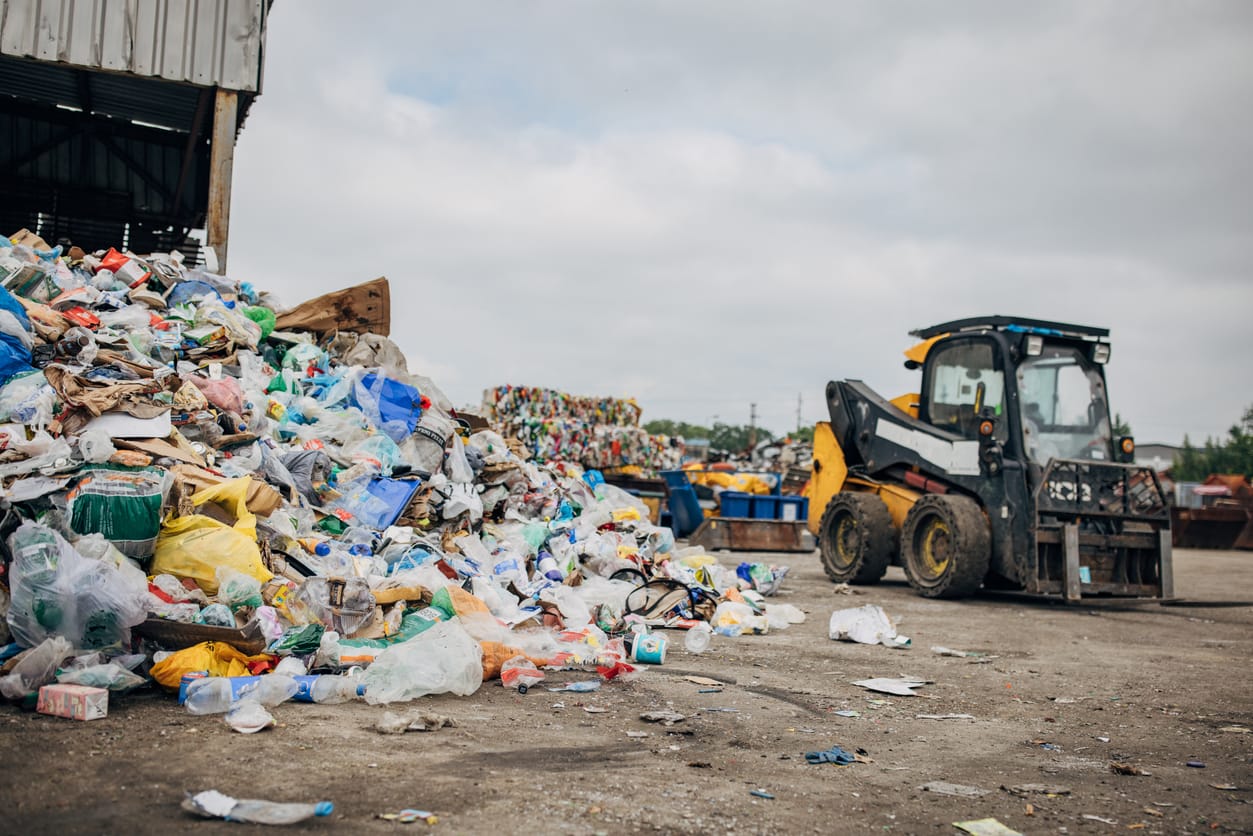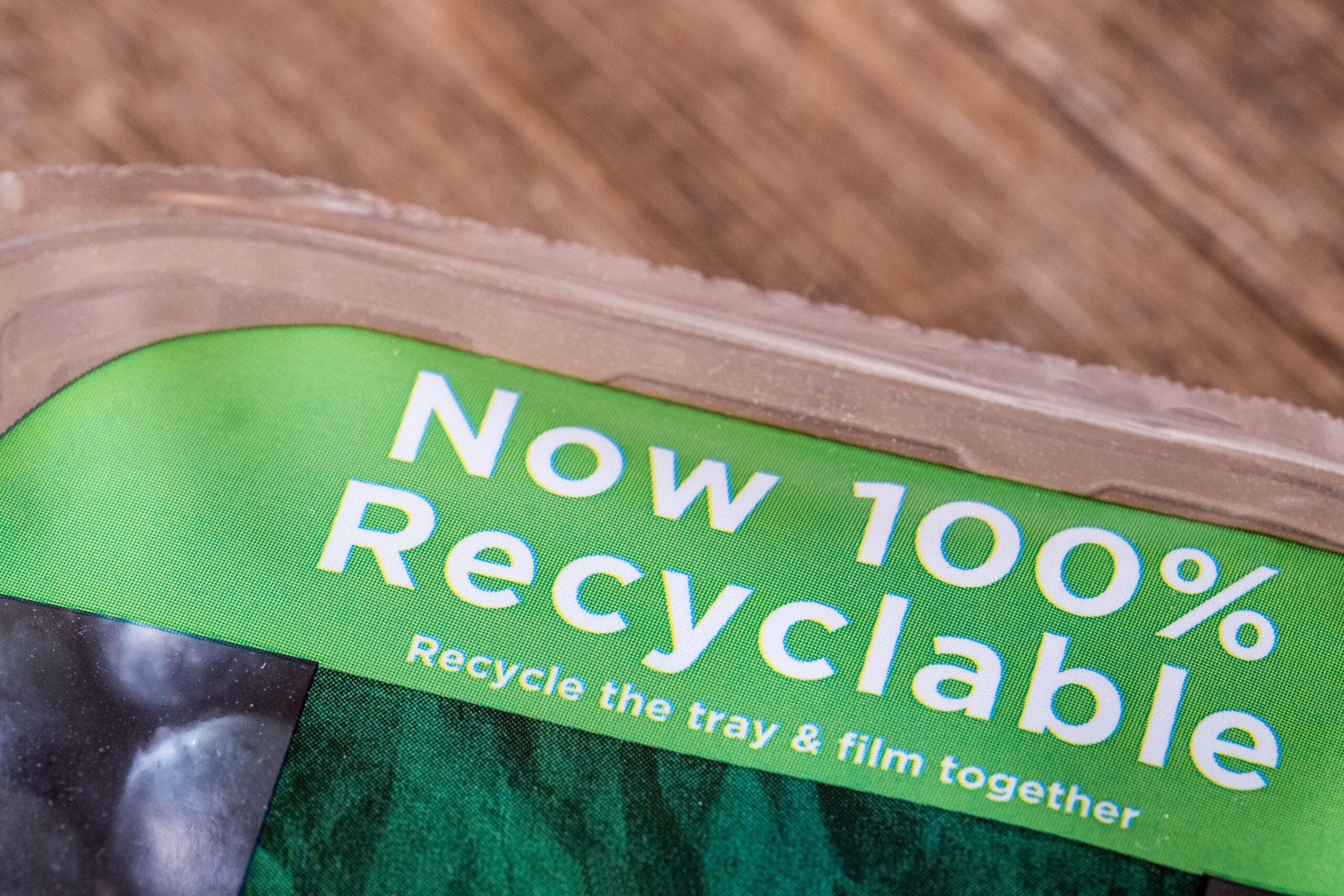Pick from our related articles...
You can find us on
Keep yourself up to date with Let's Recycle It latest news
Credit Suisse Bank: Plastic Waste to Double Without Urgent Policy Reform
Plastic Waste to Double by 2060
Credit Suisse, an international banking institution, has projected that at the current rate, annual plastic waste could double to an alarming 670 million tonnes by 2060. The bank further warns that mismanaged plastic waste is set to experience a less drastic but still concerning increase from 80 million to 100 million tonnes. It has strongly highlighted the array of challenges faced when attempting to increase the rate of recycling.
The Center for Sustainability of Credit Suisse, coinciding with the global discussions in Paris centred on a comprehensive plastics treaty, has released a report revealing an overwhelming increase in plastic consumption which has significantly surpassed both the GDP and population growth over the past six decades. From 1960 to 2020, the use of plastic soared nearly 5,000%, compared to a 650% growth in real GDP and a population surge of approximately 160%. This indicates that the growth of GDP per capita plays a pivotal role in the expected rise in plastic pollution.
Outlining the state of affairs, Credit Suisse reveals that 46% of global plastic waste is dumped into landfills, 17% is incinerated and merely 15% is recycled, leading to 22% of plastic waste being mismanaged. Emphasising the potential of recycling, the bank states that it can serve as an effective means of limiting mismanaged plastic waste and increasing the circularity of material use within the global economy. This will reduce the need for production of virgin plastics from fossil-based resources.
However, it is not all smooth sailing as the secondary plastic market is underdeveloped, making up only 6% of worldwide plastic production. Regrettably, recycling is not yet living up to its potential as a solution to the plastic waste crisis. There are many obstacles currently hindering the implementation and uptake of recycling solutions, such as the complex and diverse nature of the many different polymer types, their inherent design, and the toxicity and combustibility of plastics.
Thousands of varieties of plastics are in circulation, including commonly used polymers like HDPE, PVC, LDPE, PP, and PS, all of which require segregation for mechanical recycling. Elaborating on the complexities of the recycling process, Credit Suisse stated, “Unlike metal and glass, plastics are not inert. Their toxicity and flammability pose numerous risks for both human beings and the environment, including unforeseen chemical leaks and the potential for fire.”
Despite these challenges, the bank indicates a slightly more favourable outlook for recycling, citing the increasing policy intervention to bolster demand for recycled plastics as the source of their optimism. The EU’s Single-Use Plastics Directive, for example, necessitates plastic bottles to comprise at least 25% recycled content by 2025 and 30% by 2030. Similarly, the plastic packaging tax in the UK requires a minimum of 30% recycled content in plastic packaging materials. Such legislative measures could fuel capital investment in recycling facilities as well as fund research and development for technological advancements.
Advocacy for Government and International Policy Interventions
As the evidence and projections presented by Credit Suisse suggest, it is vital for governments and international bodies to step up their game and enforce stringent policy interventions. These measures must obligate businesses to recycle their plastic waste and compel product manufacturers to prioritise recyclability within product design. Furthermore, it should be made convenient for businesses and households alike to access ethical recycling solutions.
These policies are indispensable to our environment, not only in terms of curbing the escalating plastic pollution crisis but also in creating a sustainable future for generations to come. It is not just about recycling plastic scrap, but also about transitioning to a circular economy with net zero waste.
Moreover, these interventions will have significant socio-economic implications, setting the stage for the creation of future-proof jobs in the recycling industry. This sector could become a vibrant engine for job creation, fostering green career opportunities that not only contribute to the economy but also protect the environment.
The Implications of Government Intervention
Strong governmental policy interventions in waste management and recycling practices would stimulate a comprehensive shift in the manufacturing industry. If manufacturers were legally required to design products with recyclability in mind, it would invariably lead to innovative design practices and materials that enhance the end-of-life value of products.
This could fundamentally transform our current “take-make-dispose” linear model into a “reduce-reuse-recycle” circular model, shifting society towards more sustainable consumption and production patterns. This approach has the potential to significantly reduce resource consumption and plastic pollution while encouraging economic growth and technological innovation.
The Future is Circular
At Let’s Recycle It, we believe that increasing the accessibility of ethical recycling solutions, both for businesses and households, is the keystone in achieving this. If recycling is made more readily available, efficient, and rewarding, the likelihood of wide scale adoption is dramatically increased. For this to happen, governments around the world must start taking this seriously now.
This could involve policies to support the development of local recycling facilities, provide investment for recycling technologies, and regulate producers to bear the costs of waste management for the products they create, also known as extended producer responsibility (EPR).
The creation of a future-proof job market in the recycling industry is another compelling reason to advocate for these measures. These jobs, which include roles in collection, processing, and advanced recycling technologies, could provide a stable source of employment for individuals across varying skill levels and backgrounds.
More importantly, sustainable careers in recycling contribute to the achievement of broader environmental goals, including climate change mitigation, resource conservation, and a reduction in plastic pollution. They have the potential to create a more resilient, sustainable economy while reducing the environmental footprint of our consumption and production systems.The call for strong policy intervention is not just about managing plastic waste; it’s about safeguarding our environment, reshaping our economy, and creating a sustainable, circular future. This momentous transformation will require the collective effort of international bodies, national governments, businesses, and individuals alike. The time to act is now – for our planet and the generations to come.
Follow us to stay up to date on our latest news
If you would like to receive our newsletter to keep up to date with Let’s Recycle It news and to receive marketing information regarding our services, please let us know:


